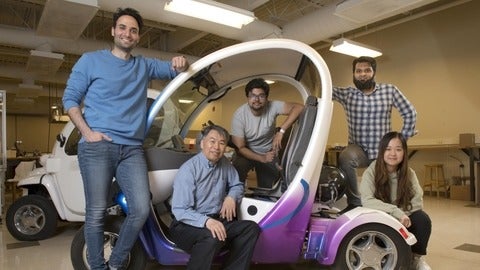Alumni’s startup trains future tech talent
Sefunmi Osinaike (BASc '17, electrical and computer engineering) and Helen Huang (BSc '17) co-founded Co.Lab in 2022 to help people who want to get into tech but aren't sure how to do it.
The company is a mentorship-based program for people from all walks of life — its motto is “you belong in tech” — and has helped more than 1,000 people in 50 countries switch careers and land roles at Apple, Google and Amazon, among others.
